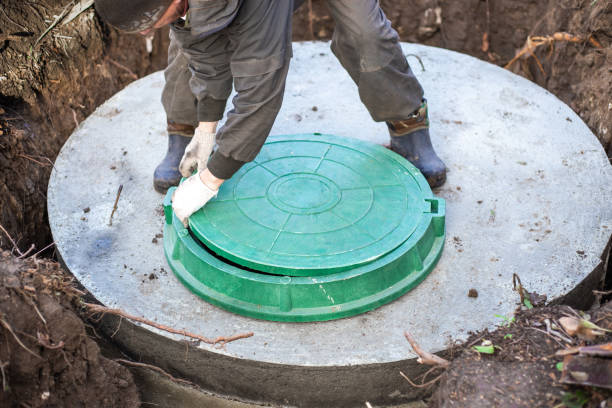Effective drain line cleaning is essential to maintaining a well-functioning waste management system for properties. However, despite careful precautions, there are occasions when undesirable items find their way into the drains, leading to the accumulation of grease and potential blockages. As a home or business owner, you understand the immediate panic and frustration when faced with septic or grease backups.
To help you avoid such distressing situations, we have compiled a list of the top four backup-prevention tips that will assist you in keeping your drainage system running smoothly and efficiently. Keep in mind that when you implement these strategies, you can also safeguard your property against costly disruptions and maintain a hygienic environment for both your employees and customers.
Ensure you Educate Your Family and Employees
Often, drain line backups occur due to the inadvertent disposal of inappropriate items down the drains. Educating your family and employees about what should and shouldn’t be flushed or poured down the drains is crucial. Create clear signage in restrooms and food preparation areas, reminding everyone to dispose of items properly.
Avoid flushing food scraps, grease, oil, sanitary products, and chemicals down the drains. Instead, provide designated receptacles for these items and educate staff and customers on their proper use.
Conduct regular training sessions to raise awareness about the potential consequences of improper disposal, emphasizing the importance of maintaining a healthy plumbing system. This way, you can minimize drain line backups and avoid costly repairs while promoting environmental sustainability.
Remember, a little education can go a long way in preserving the integrity of your plumbing infrastructure.
Have Your Grease Trap Serviced Regularly
Grease is a common culprit when it comes to drain lines. Installing grease traps in your drainage system is crucial for capturing and containing grease before it enters the pipes. Regularly maintaining and cleaning these traps are equally important to ensure their efficiency.
Develop a maintenance routine that includes skimming the grease trap, removing accumulated grease, and disposing of it properly.
Avoid using hot water or chemical cleaners, as they can solidify the grease, making it harder to remove. Instead, opt for natural enzymes or bacteria-based cleaners designed for grease trap maintenance.
Furthermore, consider implementing best practices, like using strainers in sinks to catch food particles and instructing family and employees to scrape plates before washing.
Remember that by taking these preventive measures and maintaining grease traps diligently, you can minimize drain line backups and ensure smooth operations in your restaurant.
Watch What You Flush
Clogged drains are a common and frustrating plumbing issue faced by many home and business owners. While various items can contribute to drain line backups, some of the most problematic culprits are the things people mistakenly flush down the toilet.
Items like paper towels, wipes, diapers, feminine products, cotton swabs, dental floss, hair, and grease should never be flushed. Unlike toilet paper and human waste, these items do not easily dissolve or break down in water. Over time, they can accumulate in the sewer line, creating blockages that impede proper water drainage.
This can result in backups, overflows, and potential damage to the pipes. To prevent such problems, it is crucial to flush only toilet paper and human waste, while properly disposing of everything else in the trash or designated receptacles.
Perform Routine Cleaning and Drain Maintenance
Regular drain cleaning and maintenance are key to preventing backups. Develop a maintenance schedule and ensure that your drains are cleaned and inspected by professionals regularly. Professional drain cleaners have the tools and expertise to effectively remove accumulated grease, food particles, and other debris from your drain lines.
This proactive approach can prevent clogs and potential water damage, saving you from costly repairs. Moreover, regular drain cleaning promotes a healthy and hygienic environment by eliminating unpleasant odours caused by stagnant water and decaying matter.
It also helps maintain proper drainage, preventing water pooling and potential structural damage. In addition, professional drain cleaners can identify underlying issues such as tree root intrusion or deteriorating pipes during their inspections.
Early detection allows for timely repairs or replacements, avoiding more extensive damage and expenses.Remember, investing in regular drain cleaning and maintenance is a small price to pay for the peace of mind and long-term functionality of your plumbing system.
Conclusion
Taking proactive measures to prevent drain line backups is crucial for maintaining an efficient and problem-free plumbing system in your home or business. By adopting strategies such as regular maintenance, proper waste disposal, installing drain screens, and monitoring tree root growth, you can effectively mitigate the risk of costly and inconvenient backups. However, the expertise and services of professionals are often indispensable in ensuring the long-term health of your drain lines. Don’t compromise on the performance and reliability of your plumbing system. Rely on VI REEL, our trusted company specializing in septic and excavation services, for thorough assessments, maintenance, and support tailored to your drain line needs. Reach out to us at 250-323-1010 today to protect your property from potential drain line issues and secure a smoothly functioning plumbing system for the future.


